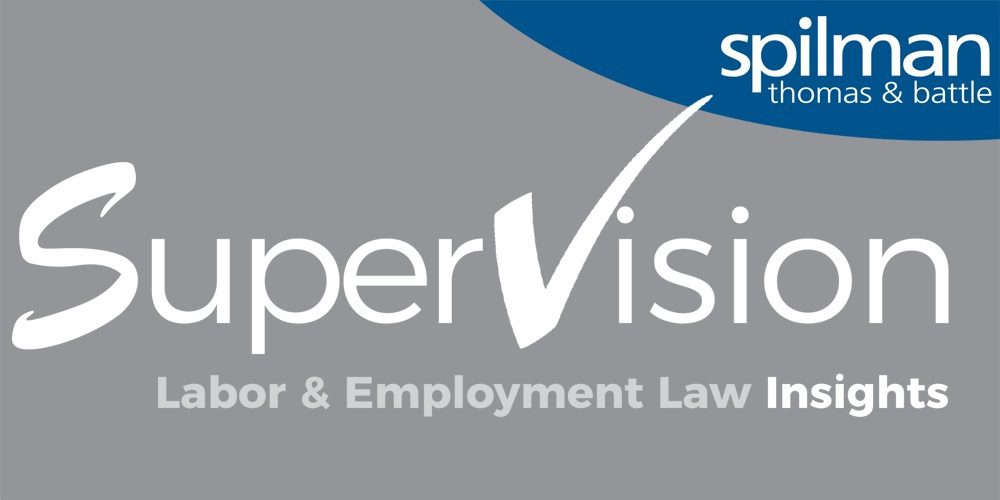Article
Resources
Article
Online, Off-Duty Harassment is Still Unlawful Harassment

Once an employer knows or has reason to know about alleged harassment, it has an obligation to promptly remedy the hostile work environment, even if the offensive conduct occurred wholly offsite, online, or off-duty. This concept was recently confirmed by a decision from the United States Court of Appeals for the Ninth Circuit, which held that courts must consider the totality of the circumstances—which can include personal social media posts—in assessing whether a work environment is hostile. The Court explicitly rejected the idea that only conduct that occurs inside the physical workplace can be actionable under federal discrimination laws. The critical questions under Title VII are “whether the harassing conduct had an unreasonable effect on the working environment” and whether and how the employer responded to that effect. Liability under Title VII may also trigger if an employer’s response is neither reasonably prompt nor effective.
A. Conduct that takes place outside of the physical work environment, including on social media, can contribute to a hostile work environment.
In Okonowsky v. Garland, a federal corrections officer created an anonymous Instagram account where he posted about the federal prison, including its Special Housing Unit (SHU) where he worked. He made hundreds of posts, including overtly sexist, racist, anti-Semitic, homophobic, and transphobic memes that directly and indirectly referred to the inmates and staff at his work site. Numerous posts displayed or suggested violence against women coworkers. Occasionally, his posts referred to the SHU’s female psychologist without identifying her by name. One of the most egregious posts joked that the male officers would “gang bang” the psychologist at her home during a party she had planned to host for her colleagues. This post and others were “liked” by other staff at the prison, and more than 100 co-workers and upper-level prison management followed the Instagram account. When the psychologist discovered the Instagram page, she immediately reported the posts to her supervisor. While the account was “anonymous,” it was not difficult for the psychologist, or the Bureau of Prisons, to identify the officer who created the Instagram account. The psychologist subsequently sued under Title VII for sex discrimination and hostile work environment.
In opposing the psychologist’s claim, the government argued that the psychologist could not establish an objectively hostile work environment because the Instagram posts all “occurred entirely outside of the workplace.” In rejecting this argument, the Court concluded that offensive conduct outside of and unrelated to the workplace that has a foreseeable, adverse impact on an employee’s working conditions may be actionable to the extent that it affects the employee’s working environment. The Court found that the psychologist produced ample evidence that the offensive Instagram posts made it more difficult for her to do her job and negatively impacted her desire to stay in her position.
B. Failure to take prompt and remedial action in response to a complaint of harassment may result in employer liability.
The Court also addressed an employer’s obligations to conduct a prompt and adequate investigation when claims of harassment are brought to its attention and take immediate and corrective action once they know of alleged harassment. Indeed, the Court made clear that conducting an inadequate investigation can be as bad for liability purposes as conducting no investigation at all. Similarly, where an employer’s “remedy” is ineffectual, an employer will not avoid liability for harassment.
Here, the prison warden met with the psychologist the day she requested a meeting and directed another agent to initiate an investigation. The same day, the prison transferred the psychologist to a different facility with her consent. Despite the psychologist’s transfer, she continued to see the officer at work and he continued making discriminatory and retaliatory Instagram posts.
The prison warden played no role in the investigation once it was transferred to the agent, and the agent himself slow-walked the investigation. Indeed, the agent conducting the investigation told the psychologist from the beginning that he believed there was nothing wrong with the officer’s conduct, and multiple other supervisors told the psychologist they thought that the officer’s page was funny and continued to follow the page on Instagram. When the prison ultimately convened a Threat Assessment Team, it determined in a matter of days that the officer’s conduct likely violated the Bureau’s Anti-Harassment Policy and issued a cease-and-desist letter to the officer.
For more than three months after the psychologist made her complaint, the harassment continued, and, in fact, grew increasingly targeted at the psychologist. Based on these facts, the Court concluded that a reasonable juror could find that the prison’s response to the alleged harassment was neither reasonably immediate nor effective.
C. Employer Takeaways
- Once an employee reports allegedly harassing conduct, the employer must investigate—even if the conduct did not happen at work or involves a third-party—if the conduct may impact the work environment.
- Employers should consider whether their anti-harassment policies adequately notify employees that their social media activity and off-duty conduct can impact their employment.
- Employers should ensure that they have adequate policies and procedures in place to ensure that complaints of harassment are addressed promptly and thoroughly.
- Anti-harassment training for all employees is critical because the analysis of whether a workplace is hostile does not start and end with the alleged harasser’s conduct. To the extent that management ratifies, endorses, or acquiesces to harassing conduct by others, it can contribute to a hostile work environment.
- When deciding how to respond to corroborated harassment, employers should prioritize implementing a remedy that promptly stops the harassment.


